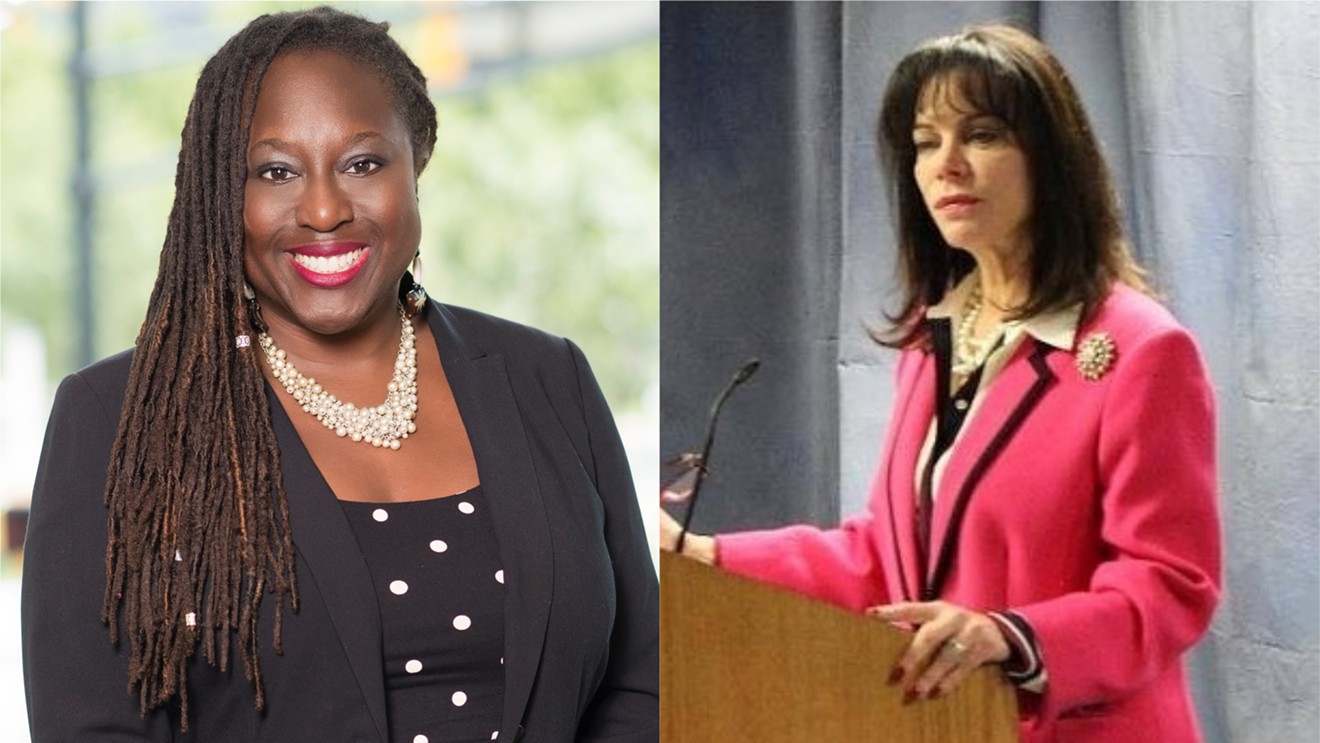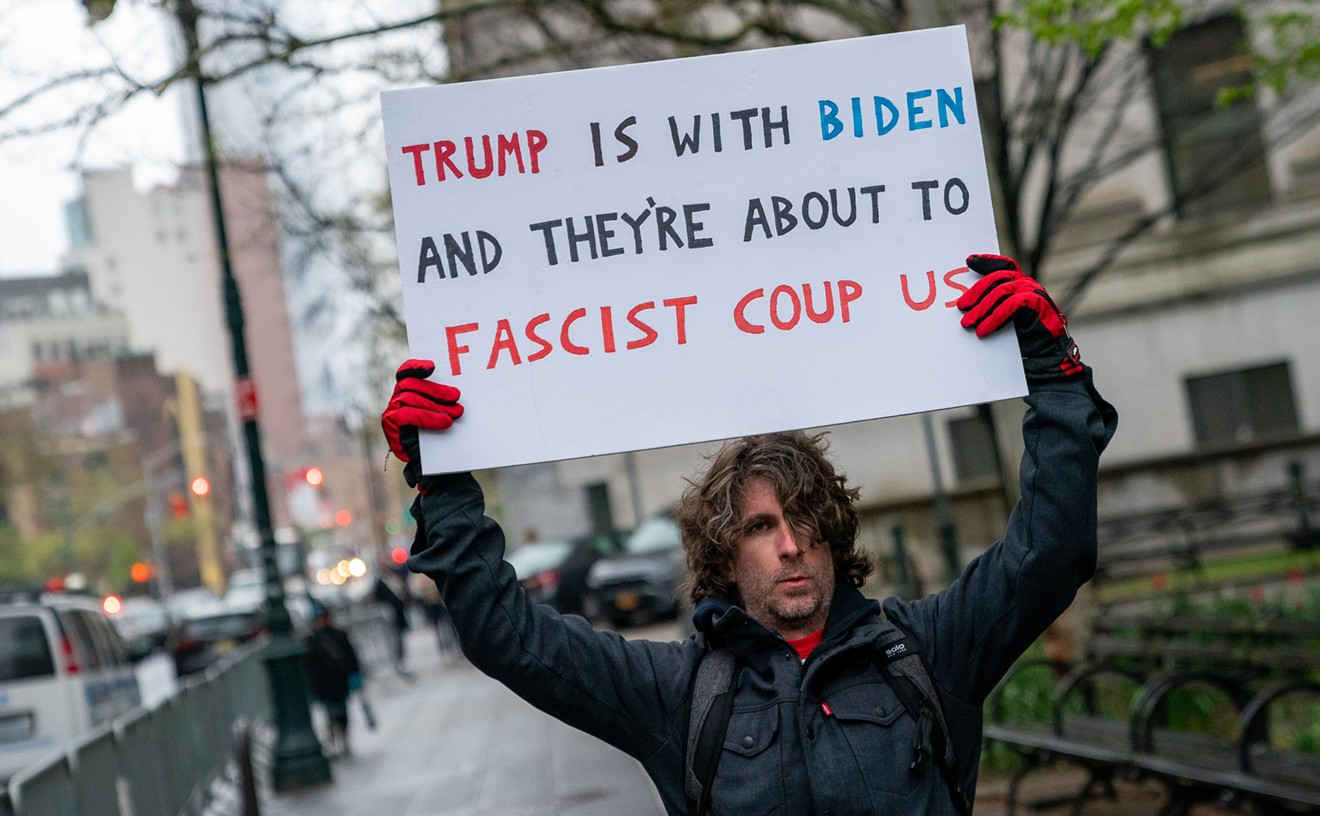Katherine Fernandez Rundle has been Miami-Dade County's top prosecutor since 1993. In that time, she has won six straight reelection bids. Because of the idiosyncratic nature of Miami-Dade politics, she ran unopposed many times. In most major cities, the state or district attorney is a constant media figure subject to all sorts of scrutiny, but Rundle for decades has generally skated by criticism despite the power she wields and the myriad ways in which she's been accused of misusing it.
But after Rundle's most criticized and tumultuous term in office — in which she refused to charge four prison guards accused of essentially cooking a schizophrenic prisoner, Darren Rainey, to death in a hot shower — she might finally be drawing a serious challenger. Sources close to New Times have confirmed that justice-reform advocates are trying to persuade the American Civil Liberties Union of Florida's veteran deputy director, Melba Pearson, to throw her hat into the ring.
Through a spokesperson, Pearson confirmed that activists and consultants had approached her, but she said she had not yet made a decision to launch a campaign.
"A number of people have approached me about running, and while I'm flattered, I am not currently planning to be a candidate for State Attorney," Pearson told New Times in a statement. "Criminal-justice reform is my passion, and right now I am focused on effecting change from the outside in my role with ACLU Florida."
If she does run, Pearson would all but certainly be the most formidable opponent of Rundle's career. Before joining the ACLU, Pearson worked in Rundle's office as a prosecutor for 16 years. According to her online bio, Pearson investigated domestic violence cases before helping relaunch the Community Prosecution Unit, a team within the State Attorney's Office that partners with community organizations and activists to find proactive ways to prevent crime. Among other groups in which she's involved, she is the past president of the National Black Prosecutors Association.
At the ACLU, Pearson has focused on justice reform and voting rights. She was heavily involved in the ACLU's efforts to support Amendment 4, which re-enfranchised millions of mostly black and brown former inmates who'd lost the right to vote. Pearson speaks frequently on justice issues in the media — in April, she told WFOR-TV reporter Jim DeFede that recent footage of a Broward Sheriff's Office deputy beating a man handcuffed to a hospital bed left her "sickened to [her] core."
Rundle, to put it mildly, does not have quite the same reputation. While her office over the years has pushed to expand diversionary courts for the mentally ill or for drug users, in other cases it's been remarkably harsh in dealing with low-level offenders. As recently as 2015, Rundle said she supported prosecutors' ability to "direct-file" juvenile defenders and try them as adults in court, a process the Miami Herald editorial board blasted as inhumane and harsh.
New Times and other media outlets have also lambasted Rundle over the years for shielding dangerous cops and demonstrably corrupt public officials from punishment. After the Rainey verdict in 2016, New Times recounted how Rundle, in her 26 years in office, had never charged a cop for killing someone in an on-duty shooting despite the fact there's a long list of questionable cases in which cops justifiably could have been arrested. (In 2017, Rundle's office charged North Miami Police Officer Jonathan Aledda with attempted manslaughter for shooting an unarmed black man in the leg, but Aledda was ultimately acquitted of that charge and instead convicted of culpable negligence.)
Rundle's office also strangely bungled a high-profile corruption case against former Miami Congressman David Rivera, long known as one of the most openly compromised people in Washington. In 2017, New Times reported that Rundle's office was routinely letting police-shooting investigations sit open for as long as eight years — a practice that essentially prevented police-misconduct victims from getting justice.
Pearson, on the other hand, came out strongly against 2018's Marsy's Law, which gave additional rights to victims of crime. Activists, including Pearson, warned that Florida crime victims already do have rights and that the added provisions in Marsy's Law give extra rights to corporations and might lead to longer jail sentences for some people. Critics also warned that Marsy's Law could shield basic crime data and records from the public — a prediction that has so far proven accurate because some sheriff's offices are now withholding basic crime data from the public in order to comply with the law. Rundle, in contrast, cut ads supporting the amendment.
Activist, left-leaning prosecutors have won high-profile runs for office in recent years by promising to dismantle racist and inhumane justice systems from the inside. Most infamous, then-defense lawyer Larry Krasner was elected Philadelphia district attorney in 2017 after winning major endorsements from justice-reform advocates and many of the same grassroots groups that supported Bernie Sanders' 2016 presidential campaign. More recently, St. Louis County elected progressive prosecutor Wesley Bell after he earned support from many of the same activists who spearheaded the Black Lives Matter movement in Ferguson, Missouri.
Some high-level political operatives in Miami expressed skepticism that an upstart candidate could upset someone as entrenched in Dade County politics as Rundle. One source, who declined to be named, suggested that voter turnout during an August primary election might favor Rundle, who would also certainly have more campaign money and name recognition than Pearson. Rundle has cruised to massive victories in her past contested races.
But others suggested that an August Democratic primary might be the exact best situation to unseat the longtime prosecutor because primary voters tend to be more engaged politically and Pearson would not have to tailor her progressive messaging to independent or Republican voters. The Dream Defenders, a Florida civil rights group formed after the Ferguson protests, told New Times last night it was delighted to see where Pearson's candidacy might go.
"We're very excited about her possible candidacy," Dream Defenders said in a written message. "Miami needs a state attorney that will work to prevent police violence and end the excessive incarceration of people of color. Rundle hasn't shown much of an interest in either in all the years she's been in office."
After Rundle's office refused to file charges in the Rainey case, the Miami-Dade Democratic Party passed a resolution asking Rundle to resign voluntarily. Juan Cuba, the leader of the Miami-Dade County Democrats until he stepped down earlier this year, told New Times he'd be happy if Pearson mounted a campaign.
"I think it’s time for new leadership in the State Attorney's Office — leadership that is fully committed to pursuing justice in every community, even when those people are powerful," Cuba said. "I think Democrats in Miami-Dade County are ready for that change. And someone like Melba, with her background, experience as a prosecutor, and the commitment she’s shown in her work at the ACLU with voting rights, civil rights, and criminal justice, is exactly what we need in the State Attorney's Office."
As for Rundle, Cuba said he still finds the Rainey verdict unacceptable and believes she should have resigned afterward.
"Look, 26 years is enough time," Cuba said. "I worry about any politician that tries to hold onto power for long. She should pass the torch."
[
{
"name": "Air - MediumRectangle - Inline Content - Mobile Display Size",
"component": "19274298",
"insertPoint": "2",
"requiredCountToDisplay": "2"
},{
"name": "Editor Picks",
"component": "17482312",
"insertPoint": "4",
"requiredCountToDisplay": "1"
},{
"name": "Inline Links",
"component": "18711090",
"insertPoint": "8th",
"startingPoint": 8,
"requiredCountToDisplay": "7",
"maxInsertions": 25
},{
"name": "Air - MediumRectangle - Combo - Inline Content",
"component": "17482310",
"insertPoint": "8th",
"startingPoint": 8,
"requiredCountToDisplay": "7",
"maxInsertions": 25
},{
"name": "Inline Links",
"component": "18711090",
"insertPoint": "8th",
"startingPoint": 12,
"requiredCountToDisplay": "11",
"maxInsertions": 25
},{
"name": "Air - Leaderboard Tower - Combo - Inline Content",
"component": "17482313",
"insertPoint": "8th",
"startingPoint": 12,
"requiredCountToDisplay": "11",
"maxInsertions": 25
}
]












